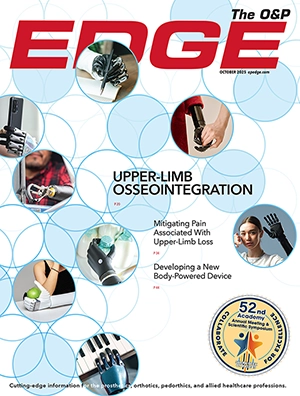In my 40-year O&P career, I practiced in several hospital-based and private facilities. Some of those years overlapped with my 20 years as an adjunct instructor of philosophy where I taught medical ethics. I recently read an article that touched on both of my occupations and brought to mind what we’ve been hearing about the rise in burnout in O&P professionals.
The author described how outdated business and medical models have caused healthcare professionals to accept unrealistic expectations and to work in “a culture of silent suffering,” and suggested reshaping our approach to medical practice so that it’s fulfilling and sustainable.
As I thought about individuals in O&P who are most susceptible to burnout, I identified two archetypes of the profession: the dedicated clinician who will do anything for their patients, and the owner/manager who will do anything to improve the bottom line. To be clear, I see nothing wrong with making money or taking care of patients; it is when either of these, or their interactions, cause harm to themselves or others that we have situations that lead to stress and exhaustion.
Then I realized that there was a third classification in between these two: the clinician who is forced, either overtly or covertly, to perform in situations that are potentially harmful to the clinician and/or to the patient. I’ve since learned that this results in “corporate trauma” and can cause employees to experience emotional and physical effects.
I could think of examples from my O&P career that aligned with each of the negative models discussed in the article, including self-sacrifice, service at all costs, and toxic independence that the facility’s managers or owners, clinicians, and office staff were expected to support. One owner arrived in a new Cadillac to inform the staff that he wouldn’t be able to make payroll that month. A manager said, “It’s not personal, it’s just business,” after making a potentially harmful decision. And I knew a clinician/owner who was very vocal about how much money he was making, but who also complained that he had not been on a vacation in years nor had he had a weekend off in months.
Three principles of medical ethics are first, do no harm—and this includes not harming oneself—do good, and allow autonomy. If clinicians, owners, and managers applied these to themselves and to others, I think that the potential for burnout would be lessened if not eliminated.
To read “The broken health care system doesn’t have to break you,” visit kevinmd.com.
Robert Rhodes was an orthotist for 42 years. He retired from clinical practice in 2004, and from teaching in 2014. He can be contacted at rrhodes4@emich.edu.



